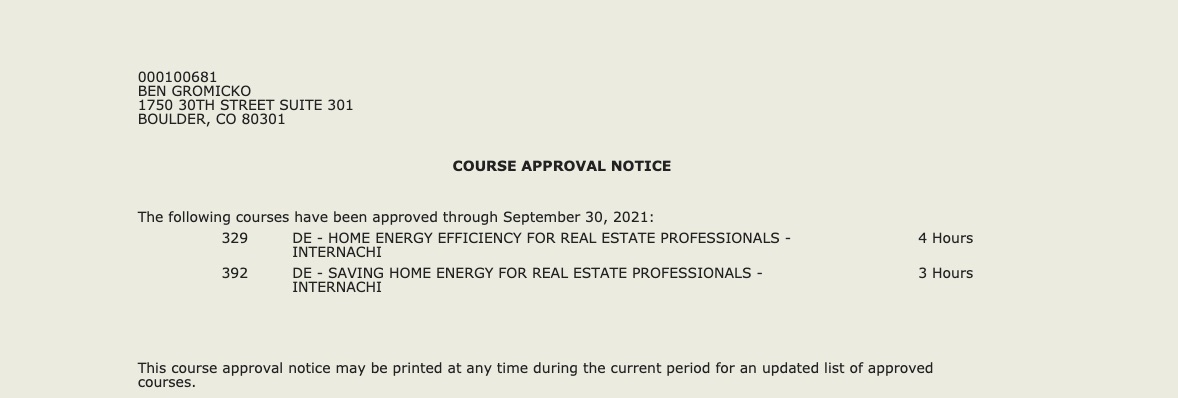
TREC contracts are one of the most commonly used real estate contract types in Texas. The Texas Real Estate Commission has promulgated a standard form which is used to complete residential transactions by license holders. It is possible to customize it by checking off boxes and adding addendums based on what type of sale you are making.
Brokers and agents can complete the basic form online. This is the most common contract used in Texas. It's used by agents and brokers for over 99% of real estate transactions in the state.
The TREC contract structure is very important for buyers who are financing property purchases. To ensure that the transaction between buyer and seller is smooth, there are several issues to address.
1. The TREC Contract does not permit a certain amount to be put down as earnest cash. This may seem to be no big deal. However, if a buyer's offer was accepted and the seller did not have enough financing, it could leave the buyer in a very difficult situation when it came time to refund the earnest money.

2. Generally, the TREC contract does not provide enough space to insert covenants that are important to the seller or the buyer. The TREC contracts also limit the space for special provisions.
3. The TREC form does not provide adequate space to insert representations and warranties by the seller or the buyer.
This is an area that should be addressed very carefully and extensively when negotiating the TREC contract. Representations, warranties and other terms are important parts of any contract. They can become very contentious between the two parties.
4. In most cases, the property is owned by more than one person.
Buying and selling properties is usually a negotiated and contentious process, so it is important that the contract covers all of the major issues that need to be addressed in order for the deal to go smoothly. A well-drafted agreement will address important issues that may be overlooked in other types transactions.

5. The "Sub2” or "Subject-to" Transaction
A custom sub2 addendum is almost always a better option than the TREC or Texas Realtors sub2 addendum that is included in the TREC and Texas Realtors contracts. A custom sub2 addendum will allow the parties to expressly define their interest in the property and will help prevent any confusion later on.
6. The seller may have covenants or restrictions on the property which the buyer must observe. A custom special provision addendum is a good way to ensure that these will be clearly spelled out in the contract and that a request for a copy of any applicable restrictions can be made during the option period.
TREC contract does not have a long list of seller warranties or representations. Therefore, it is vital that they are included. Even though there is a "survival Clause" in the TREC Contract that allows the covenants as well as representations & warranties to continue after closing, you should still add a special clause that specifies that the parties are not going to rely on the representations & warranties for determining value.
FAQ
What should you think about when investing in real property?
You must first ensure you have enough funds to invest in property. If you don't have any money saved up for this purpose, you need to borrow from a bank or other financial institution. You also need to ensure you are not going into debt because you cannot afford to pay back what you owe if you default on the loan.
You should also know how much you are allowed to spend each month on investment properties. This amount must be sufficient to cover all expenses, including mortgage payments and insurance.
Finally, ensure the safety of your area before you buy an investment property. It would be a good idea to live somewhere else while looking for properties.
What's the time frame to get a loan approved?
It depends on several factors such as credit score, income level, type of loan, etc. Generally speaking, it takes around 30 days to get a mortgage approved.
How can I determine if my home is worth it?
It could be that your home has been priced incorrectly if you ask for a low asking price. If you have an asking price well below market value, then there may not be enough interest in your home. Get our free Home Value Report and learn more about the market.
How much should I save before I buy a home?
It all depends on how many years you plan to remain there. You should start saving now if you plan to stay at least five years. If you plan to move in two years, you don't need to worry as much.
Can I get another mortgage?
Yes. But it's wise to talk to a professional before making a decision about whether or not you want one. A second mortgage is often used to consolidate existing loans or to finance home improvement projects.
Statistics
- Over the past year, mortgage rates have hovered between 3.9 and 4.5 percent—a less significant increase. (fortunebuilders.com)
- This seems to be a more popular trend as the U.S. Census Bureau reports the homeownership rate was around 65% last year. (fortunebuilders.com)
- Some experts hypothesize that rates will hit five percent by the second half of 2018, but there has been no official confirmation one way or the other. (fortunebuilders.com)
- It's possible to get approved for an FHA loan with a credit score as low as 580 and a down payment of 3.5% or a credit score as low as 500 and a 10% down payment.5 Specialty mortgage loans are loans that don't fit into the conventional or FHA loan categories. (investopedia.com)
- 10 years ago, homeownership was nearly 70%. (fortunebuilders.com)
External Links
How To
How do you find an apartment?
Moving to a new place is only the beginning. This process requires research and planning. This involves researching and planning for the best neighborhood. Although there are many ways to do it, some are easier than others. The following steps should be considered before renting an apartment.
-
Data can be collected offline or online for research into neighborhoods. Online resources include websites such as Yelp, Zillow, Trulia, Realtor.com, etc. Local newspapers, landlords or friends of neighbors are some other offline sources.
-
You can read reviews about the neighborhood you'd like to live. Yelp. TripAdvisor. Amazon.com have detailed reviews about houses and apartments. You may also read local newspaper articles and check out your local library.
-
Make phone calls to get additional information about the area and talk to people who have lived there. Ask them what they liked and didn't like about the place. Ask if they have any suggestions for great places to live.
-
You should consider the rent costs in the area you are interested. You might consider renting somewhere more affordable if you anticipate spending most of your money on food. However, if you intend to spend a lot of money on entertainment then it might be worth considering living in a more costly location.
-
Find out about the apartment complex you'd like to move in. Is it large? How much is it worth? Is it pet friendly? What amenities are there? Can you park near it or do you need to have parking? Do tenants have to follow any rules?